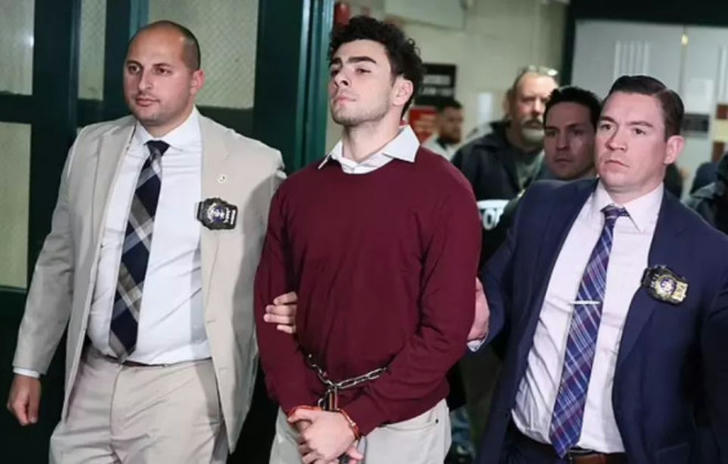The real-life Batman is born? The story behind the shooting of the CEO of an American health insurance giant
On December 4, 2024, a highly controversial case attracted national attention: Luigi Mangione, a computer science graduate from the University of Pennsylvania, was arrested on suspicion of murdering Brian Thompson, CEO of United Healthcare, the largest health insurance company in the United States.
The trigger of the case and his motives are closely related to the American medical system.

What We Know About the Murder Case
• Luigi Mangione, 26, comes from a powerful family in Maryland with deep roots in real estate, medicine and media.His grandfather Nicholas was also keen on charity, donated a lot of money to medical institutions, and founded Lorien Health Services, where Luigi once volunteered. Luigi studied at the University of Pennsylvania, an Ivy League school and the top 10 American university, majoring in artificial intelligence and minoring in mathematics.
• At 6:44 a.m. on December 4, 2024, Luigi Nicholas Mangione allegedly shot and killed Brian Thompson, CEO of UnitedHealth Group, three times with a homemade 3D printed pistol outside a Hilton Hotel in Manhattan, New York. On December 9, 2024, local time, Luigi Mangione was arrested in Altoona, Pennsylvania. The words "deny," "defend," and "depose" were written on the shell casings left at the scene of Luigi's shooting. Obviously, Luigi shot the CEO to retaliate against the insurance company and the entire industry.
Background of the incident: Systemic defects in the US medical system
• High rejection rate and profit-driven:
UnitedHealth Insurance's rejection rate is as high as 32%, far exceeding the industry average (17%), and the slow processing of claims has led to the death of patients due to delayed treatment. The company has even been accused of using an AI algorithm with an error rate of up to 90% to deny necessary care to elderly patients 37. These practices expose the ethical deviation of insurance companies that put profits over patients' lives.
• Medical cost burden:
The average annual medical insurance cost of American families is $25,000, but the inefficient medical system ranks only 1st in the world in terms of life expectancy. 42. The public's dissatisfaction with commercial health insurance has accumulated for a long time, and Luigi's behavior has become the outbreak point of this emotion.
The anger behind the accusation
• His anger represents the true feelings of some Americans. Data shows that 18% of Americans were denied medical services that should have been covered in the past year, while 27% received less than expected compensation.
• The victim is an executive of the second largest health insurance company in the United States. In 2023, his disclosed salary reached a staggering $10.2 million. And this insurance company is also very controversial in the United States. The company once used automated tools to increase the insurance rejection rate. The rejection rate was as high as 32% after searching.
Ways to break the deadlock
Mangione's case reflects the complex reality of the US medical system. Reforming the medical system is obviously not easy, but the following points may be worth learning from:
• Improve transparency and patient education:
Make key information such as insurance coverage and medical pricing public to reduce patients' confusion and anxiety when facing medical needs.
• Optimize resource allocationl:
Solve the problem of doctor shortage, encourage more young people to enter the medical industry, and reduce the popularity of expensive and ineffective treatments, so that limited resources can be used in more needed places.
• Optimize resource allocation:
Solve the problem of doctor shortages, encourage more young people to enter the medical industry, and at the same time reduce the popularity of expensive and ineffective treatments, so that limited resources can be used in more needed places.
Establish a reasonable balance of interests to redistribute benefits between insurance companies, hospitals and patients, reduce the economic pressure on patients, and prevent insurance companies from becoming the "scapegoat" of the medical system.
• Focus on public health issues:
While solving the problems of the medical system, we also need to face up to other factors that affect life expectancy, such as gun violence and chronic disease management. These problems seem to have nothing to do with the medical system, but they directly affect the health level of society.

Conclusion
Behind the Mangione case, it reflects a country's profound contradictions in the medical system: when costs, benefits and human nature are entangled, how do we find a balance? Perhaps we can't solve all problems in a short time, but if this tragedy can prompt more people to pay attention to medical equity and promote policy changes, then its significance far exceeds the case itself.
